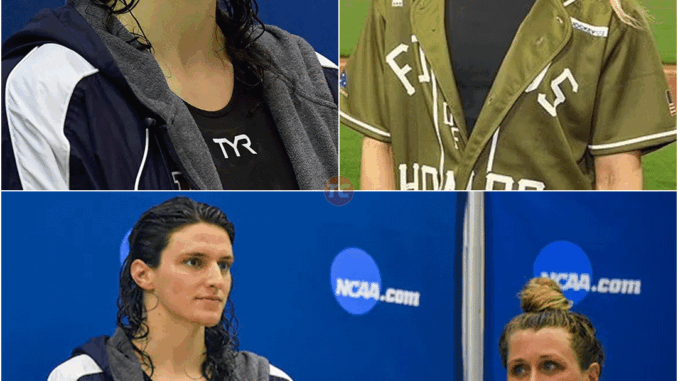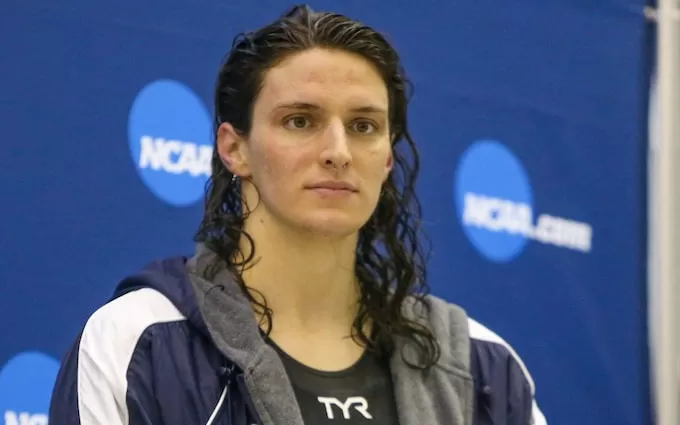
In a landmark decision that’s sending shockwaves through collegiate athletics, the NCAA has officially stripped Lia Thomas of all her medals and titles. This reversal marks one of the most controversial moves in recent sports history and has reignited the national debate over fairness, inclusion, and the future of women’s sports.

A Brief Look Back
Lia Thomas, a transgender swimmer from the University of Pennsylvania, made headlines in 2022 when she became the first openly transgender woman to win an NCAA Division I championship. Her wins were hailed by some as groundbreaking but criticized by others who claimed that Thomas had retained physical advantages from male puberty, which gave her an unfair edge over cisgender female competitors.
Among those critics was Riley Gaines, a former University of Kentucky swimmer who competed directly against Thomas. Gaines repeatedly voiced concerns about what she saw as a lack of fairness in the competition, saying that many female athletes were being robbed of hard-earned titles and opportunities.
The NCAA’s Decision
After months of legal review, public pressure, and increasing demands from both athletes and policy advocates, the NCAA announced that all medals and titles awarded to Thomas have been revoked. The organization cited the need to ensure a level playing field and referenced recent policy updates by global governing bodies like World Aquatics.
Those updates now require transgender athletes to complete transition before the onset of male puberty to compete in women’s elite categories. Thomas, having transitioned later, no longer meets the updated standards.

Riley Gaines Poised for Restoration
As Thomas’ name is removed from the NCAA record books, attention turns to Riley Gaines and other athletes who were directly impacted by the previous outcomes. Gaines, who tied with Thomas during the 2022 NCAA championships, is now expected to be reinstated as the rightful medalist in at least one event.
While she has said that the fight was never about personal gain, Gaines has become the face of a movement pushing for stronger protections for women’s sports. Her advocacy has earned both praise and criticism, but her persistence is undeniably reshaping policy.
A Deepening Divide
The NCAA’s ruling has drawn sharp responses from across the political and cultural spectrum. Supporters see the decision as a long-overdue correction—one that defends the rights of female athletes and prioritizes fairness in competition.
Opponents argue that the move undermines the progress made toward inclusivity in sports and represents a step backward for transgender rights. Some LGBTQ+ organizations have already condemned the ruling, saying it singles out and punishes transgender athletes for their identity.
What Comes Next?
The NCAA’s handling of medal redistribution remains ongoing. Meanwhile, many expect this decision to set a precedent for other collegiate and professional sports organizations to review or revise their own transgender inclusion policies.
One thing is certain: the debate over who gets to compete in which category—and under what rules—is far from over. As the public, politicians, and athletes continue to weigh in, the future of gender and fairness in competitive sports hangs in the balance.
For Riley Gaines, the decision represents not just a personal vindication but a defining moment in the battle over the integrity of women’s sports. And for Lia Thomas, it’s a stunning reversal that underscores how rapidly public opinion—and policy—can shift.














